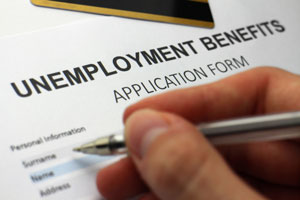Does Government Spending Create Jobs?

The most recent U.S. expansion, however lackluster, entered its eighth year in June.1 In anticipation of the possibility (or perhaps inevitability) of another recession, observers have remarked on how and whether countercyclical fiscal policy should be used to combat an economic downturn.
In response to the last recession, the federal government undertook a large fiscal stimulus, the American Recovery and Reinvestment Act (ARRA). When all was said and done, the act cost $2,760 per capita, making it the largest program of its kind since the New Deal of the 1930s. It increased the U.S. federal debt by $840 billion.
Gauging Effects through Military Spending
Research Analyst Rodrigo Guerrero and I took up the issue of the efficacy of government spending at increasing employment. We looked specifically at over 120 years of U.S. military spending, which provides a kind of "natural experiment" for our analysis.
Looking at government spending more generally suffers from the problem that the spending may be correlated with economic activity: The government may spend more during a recession (as with ARRA) or more during an expansion (when tax revenues are high). This might bias the results, which economists call "an endogeneity bias."
Military spending, on the other hand, is likely to be determined primarily by international geopolitical factors rather than the nation's business cycle. Specifically, we used a dataset developed in pioneering work by Valerie Ramey and, on several of the papers, her co-authors Michael Owyang and Sarah Zubairy.2
The Effects of Stimulus on Employment
To control for potential "anticipation effects," Owyang, Ramey and Zubairy used historical documents to construct a time series of military spending news shocks. This allowed them to disentangle the time of military spending from when the public learned that military spending was going to change in the future. Those authors looked at the output response to the spending shocks. They found a small effect of military spending on output and that the size of this effect did not depend on whether the economy was slack or not.3 Specifically, a $1 increase in government spending caused a less than $1 increase in gross domestic product (GDP).
We used a similar methodology and found that military spending shocks had a small effect on civilian employment. Following a policy change that began when the unemployment rate was high, if government spending increased by 1 percent of GDP, then total employment increased by between 0 percent and 0.15 percent. Following a policy change that began when the unemployment rate was low, the effect on employment was even smaller.
In the event of another recession, policymakers have a number of stabilization tools at their disposal, including quantitative easing, negative interest rates and tax relief. The research discussed above suggests that one other device, namely countercyclical government spending, may not be very effective, even when the economy is slack.
Notes and References
1 According to the National Bureau of Economic Research, the trough of the last contraction occurred in June 2009.
2 Ramey and Zubairy are economics professors at the University of California-San Diego and Texas A&M, respectively. Owyang is an assistant vice president and economist at the Federal Reserve Bank of St. Louis. Two of these papers using the long time series on military spending news are: Owyang, Michael T.; Ramey, Valerie; and Zubairy, Sarah. "Are Government Spending Multipliers Greater during Periods of Slack? Evidence from 20th Century Historical Data," American Economic Review Papers and Proceedings, 2013, Vol. 103, Issue 3, pp. 129-34; and Ramey, Valerie; and Zubairy, Sarah. "Government Spending Multipliers in Good Times and in Bad: Evidence from U.S. Historical Data," Working Paper, 2016.
3 In one study, those authors found that the output effect of government spending in Canada tended to be higher when the unemployment rate was high.
Additional Resources
- Regional Economist: Government Spending Might Not Create Jobs Even during Recessions
- On the Economy: Jobs Found through Referrals Pay More
- On the Economy: How Much Does Government Spending Boost Aggregate Employment?
Citation
Bill Dupor, ldquoDoes Government Spending Create Jobs?,rdquo St. Louis Fed On the Economy, Aug. 9, 2016.
This blog offers commentary, analysis and data from our economists and experts. Views expressed are not necessarily those of the St. Louis Fed or Federal Reserve System.
Email Us
All other blog-related questions


